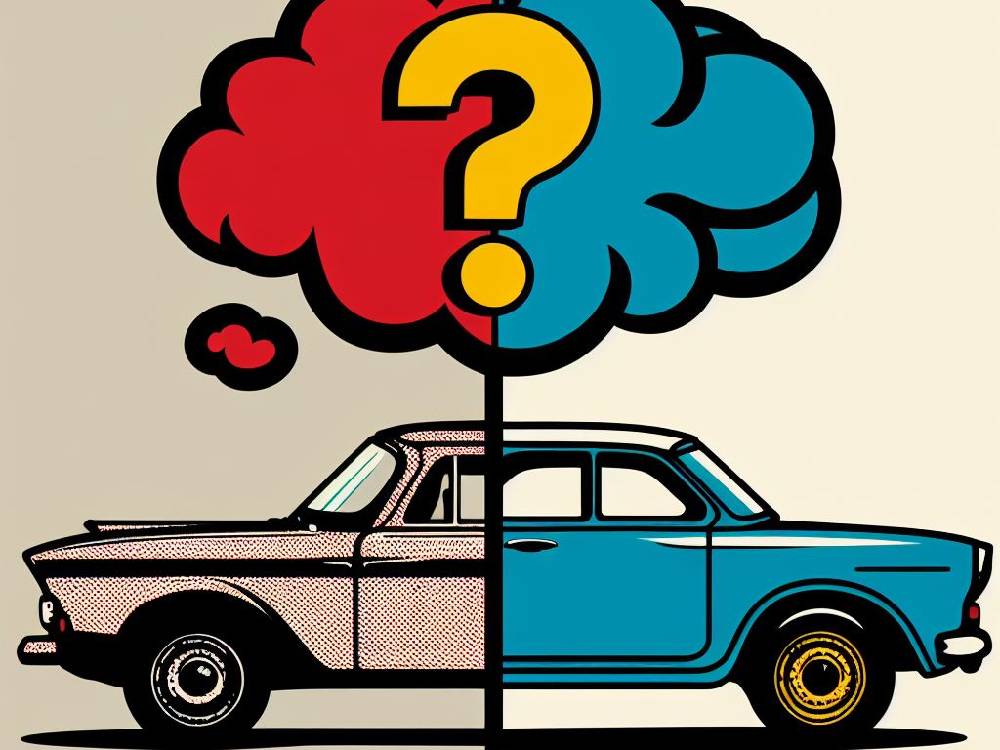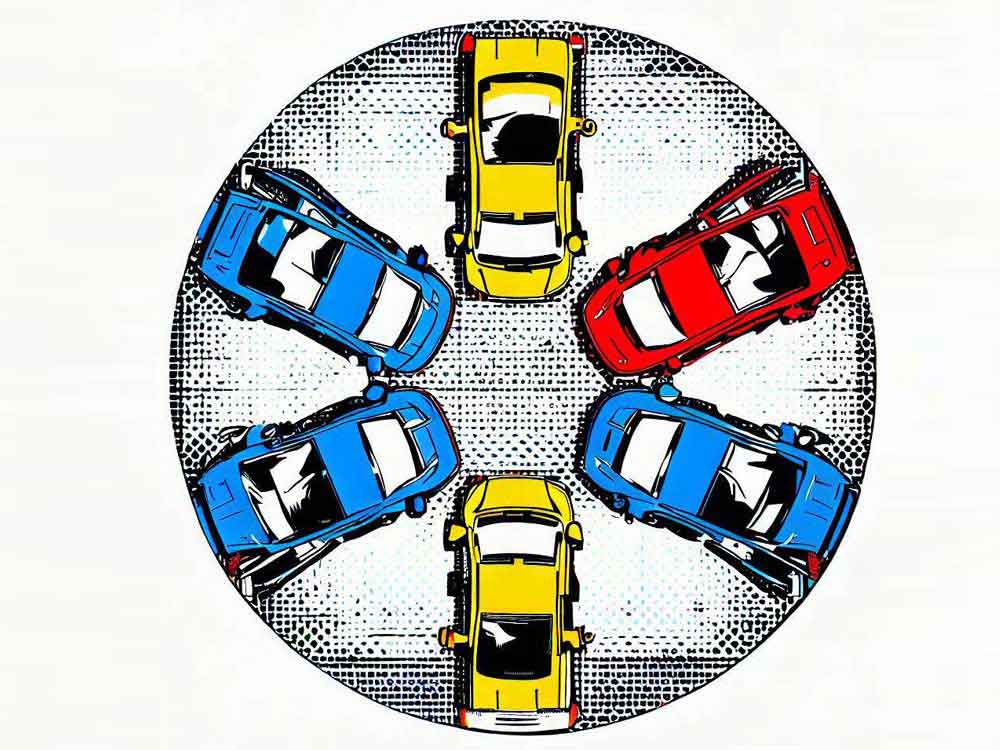Introduction
New vs Old…
A Deep Dive into the Nuances of Car Insurance Costs in the UK
In the bustling streets of the UK, from the iconic London cabs to the countryside’s classic vehicles…
Cars are more than just a mode of transportation.
They represent style, status, and sometimes, a dash of nostalgia.
But here’s the burning question:
When it comes to insuring these precious possessions, does age play a decisive role?
At Cheap Car Insurance, we’ve examined this in detail.
Let’s embark on a journey and uncover some essential truths:
Vehicle Age: Is it possible that an older model implies cheaper insurance premiums? Or does the allure of a new car have its financial perks?
New vs Used: Dive into our insights on young driver tips and see how vehicle age influences rates.
Eco-friendly Choices: With the green revolution, the UK’s streets are filled with electric and hybrid cars. But how do they fare in the insurance arena?
“Nearly New” Phenomenon: There might be the solution to the age-old debate between new and used.
New vs Old – Pros Of Buying A New Car
Diving into the world of new cars…
There’s an undeniable magic in a brand-new vehicle.
The shine, the untouched interiors, and oh, that fresh car scent.
But here’s the kicker:
New cars offer more than just sensory pleasures.
They come with unmatched reliability due to zero prior usage.
Moreover, with a new car, you get a fresh warranty.
This means if anything goes south initially, you’re covered.
State-of-the-art tech features are now the norm.
These not only enhance your driving experience but can also be a boon when seeking insurance on platforms like Cheap Car Insurance.
For more on tech features and their insurance implications, check our guide on comprehensive vs third-party insurance.
New vs Old – Cons Of A New Car
However, every shiny object has its dull side.
New cars, despite their charm, come with their set of challenges.
The most evident one?
The hefty price tag.
This higher value could directly increase insurance costs.
After all, a more valuable car means a larger payout if it gets written off or stolen.
Furthermore, new cars depreciate rapidly.
The moment they roll off the dealership, their value plummets.
Worried about the costs of a new car? Read our insights on temporary car insurance.
What’s more, is there could be wait times.
Yearning for that limited-edition model?
You might need to wait.
And now for the surprise:
New models, in some instances, come with higher insurance premiums.
Their value, combined with their appeal to potential thieves, can ramp up insurance costs.
Pros Of Buying A Used Car
Venturing into the domain of used cars…
There’s an undeniable allure in their budget-friendly nature.
Your dream car might suddenly be within reach if it’s a few years old.
But here’s the best part:
Used cars depreciate slower.
Unlike new cars, which lose value rapidly, used cars do so at a gradual pace.
And this slower depreciation?
It can be a saviour when seeking insurance.
There’s also the advantage of immediate availability.
Spot a model you adore?
You could drive it home the same day.
And let’s not forget:
Complete ownership without looming finance deals is liberating.
This autonomy could even reflect in more favourable insurance rates.
For a closer look at insurance rates for used cars, see our detailed post on how much car insurance costs for a new driver.
Cons Of Purchasing A Used Car
But, as with everything, used cars have their pitfalls.
The shadow of uncertain vehicle history looms large.
Past accidents? Maintenance history?
Such ambiguities can make insurers wary.
Moreover, many used cars might offer limited or no warranty.
This means unexpected repair costs could be on you.
Additionally, with used cars, you might have to sacrifice customisability.
Desire a particular shade or feature?
You might need to compromise.
Aesthetically, visible wear and tear could be an issue.
But that’s not all:
It might also influence insurance premiums.
Lastly, older models could have outdated safety tech.
This might not just be a safety concern but could also elevate insurance rates.
If you’re exploring used cars, our guide on multi-car insurance might help you save!
Electric and Hybrid Car Surge in the UK
Transitioning to a greener topic…
Mid-2023 has seen a palpable shift in the UK’s car scene.
Electric and hybrid cars are no longer the future; they’re the present.
Thanks to the government’s eco-friendly initiatives, they’ve surged in popularity.
But, you might wonder:
How do they stand insurance-wise?
In the early days, premiums for these cars were higher.
However, as they grow in popularity and familiarity, this dynamic is evolving.
With resources like Cheap Car Insurance offering insights, things are looking up.
Could these green vehicles offer new car benefits without skyrocketing insurance costs?
It’s a space worth watching.
For more intriguing reads, visit our blog.
The “Nearly New” Phenomenon: Bridging The Gap
Entering a zone that’s neither completely fresh nor entirely aged…
Have you ever heard of the “nearly new” car?
It’s not brand-new, yet not old enough to be classified as ‘used’.
Often, these vehicles serve as demo models in showrooms.
Their advantage?
They provide a beautiful middle ground.
You get the feel of a new car, minus the steep depreciation.
Plus, these cars often come loaded with high specs and features.
Yet, before you jump on this bandwagon, there are nuances to consider.
While they’re feature-rich, choice might be limited in terms of colours and add-ons.
Moreover, their warranty might have already commenced, offering a slightly reduced coverage period.
From an insurance perspective, they’re intriguing.
They don’t command the high premiums of brand-new models.
Yet, they might be slightly more than older used cars.
Want to delve deeper? Our guide on insurance for nearly new cars provides comprehensive insights.
Insurance Costs: The New vs Old Debate
Now, let’s circle back to our prime query…
Do new cars really burn a deeper hole in your pocket insurance-wise?
At a glance, yes.
Their higher market value can potentially hike up the premium.
But wait, there’s more.
New cars often come equipped with the latest safety features.
These modern tech integrations can sometimes swing the insurance pendulum in their favour.
Advanced safety measures can significantly reduce the risk of hefty claims, appealing to insurers.
On the flip side, older cars, with their reduced value, naturally command a lower premium.
However, their outdated safety features and potential wear and tear could be deterrents.
To truly decode this, it’s essential to balance the car’s value against its potential risk factors.
If you’re keen on understanding the intricacies of various insurance types, our analysis on comprehensive vs third-party can be enlightening.
Concluding Thoughts
To new or not to new, that seems to be the question.
While newer cars come with a promise of reliability, cutting-edge tech, and warranties, they also carry the burdens of high cost, rapid depreciation, and potentially elevated insurance rates.
Used cars, with their affordability and immediate availability, do present challenges like uncertain histories and outdated safety features.
It all boils down to individual priorities.
Are you seeking the thrill of the latest model or the economical sensibility of a used vehicle?
Whatever your choice, ensure you’re well-informed.
For more deep dives into the world of car insurance, from understanding insurance for electric vehicles to grasping the nuances of insurance for imported cars, our blog at Cheap Car Insurance is a treasure trove.
Drive safe and stay insured!





